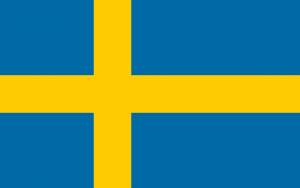Language/Swedish/Grammar/Basic-adjectives/az
 Հայերէն
Հայերէն Български език
Български език 官话
官话 官話
官話 Hrvatski jezik
Hrvatski jezik Český jazyk
Český jazyk Nederlands
Nederlands English
English Suomen kieli
Suomen kieli Français
Français Deutsch
Deutsch עברית
עברית हिन्दी
हिन्दी Magyar
Magyar Bahasa Indonesia
Bahasa Indonesia فارسی
فارسی Italiano
Italiano 日本語
日本語 Қазақ тілі
Қазақ тілі 한국어
한국어 Lietuvių kalba
Lietuvių kalba Νέα Ελληνικά
Νέα Ελληνικά Şimali Azərbaycanlılar
Şimali Azərbaycanlılar Język polski
Język polski Português
Português Limba Română
Limba Română Русский язык
Русский язык Српски
Српски Español
Español العربية القياسية
العربية القياسية Wikang Tagalog
Wikang Tagalog தமிழ்
தமிழ் ภาษาไทย
ภาษาไทย Türkçe
Türkçe Українська мова
Українська мова Urdu
Urdu Tiếng Việt
Tiếng ViệtGrading system in Sweden[redaktə | mənbəni redaktə et]
Before we dive into the basic adjectives in Swedish, it is important to know that Sweden uses a grading system that ranges from A to F. In order to pass a course, a student must receive a grade of E or higher. A grade of A, B, or C is considered a pass with distinction. This grading system is used in both primary and secondary education, as well as in universities.
Basic Adjectives[redaktə | mənbəni redaktə et]
Adjectives are words that describe or modify nouns. In Swedish, adjectives are typically placed before the noun and they agree with the gender and number of the noun. In this section, we will cover some of the most common adjectives in Swedish, including their usage and placement in sentences.
Adjectives to describe personality[redaktə | mənbəni redaktə et]
Here are some common adjectives in Swedish that describe personality:
| Swedish | Pronunciation | North Azerbaijani |
|---|---|---|
| snäll | [snɛlː] | xoşdəyərli |
| rolig | [ˈruːlɪg] | maraqlı |
| arg | [arɡ] | qəzəblidir |
| glad | [ɡlaːd] | şadıq |
- Snäll (Kind) - Jag tycker om min snälla granne. (I like my kind neighbor.)
- Rölig (Funny) - Han är en rölig kille. (He is a funny guy.)
- Arg (Angry) - Varför är du så arg? (Why are you so angry?)
- Glad (Happy) - Jag är så glad att se dig. (I am so happy to see you.)
Adjectives to describe appearance[redaktə | mənbəni redaktə et]
Here are some common adjectives in Swedish that describe appearance:
| Swedish | Pronunciation | North Azerbaijani |
|---|---|---|
| stor | [stuːr] | böyük |
| liten | [liːtɛn] | kiçik |
| vacker | [ˈvakːɛr] | gözəl |
| ful | [fɵl] | çirkin |
- Stor (Big) - Detta är en stor hund. (This is a big dog.)
- Liten (Small) - Hon har en liten bil. (She has a small car.)
- Vacker (Beautiful) - Den här platsen är så vacker. (This place is so beautiful.)
- Ful (Ugly) - Den här byggnaden är så ful. (This building is so ugly.)
Adjectives to describe emotions[redaktə | mənbəni redaktə et]
Here are some common adjectives in Swedish that describe emotions:
| Swedish | Pronunciation | North Azerbaijani |
|---|---|---|
| ledsen | [ˈleːdsən] | qəmli |
| trött | [trœtː] | yorğun |
| rädd | [rɛdː] | qorxulu |
| lycklig | [ˈlʏkːlɪg] | xoşbəxt |
- Ledsen (Sad) - Jag är ledsen att höra det. (I am sad to hear that.)
- Trött (Tired) - Jag är så trött efter jobbet. (I am so tired after work.)
- Rädd (Afraid) - Jag är rädd för spindlar. (I am afraid of spiders.)
- Lycklig (Happy) - Jag är så lycklig idag. (I am so happy today.)
Conclusion[redaktə | mənbəni redaktə et]
In this lesson, we covered some of the most common adjectives in Swedish, including their usage and placement in sentences. Remember that adjectives in Swedish must agree with the gender and number of the noun they describe. Practice using these adjectives in sentences to improve your Swedish language skills.

